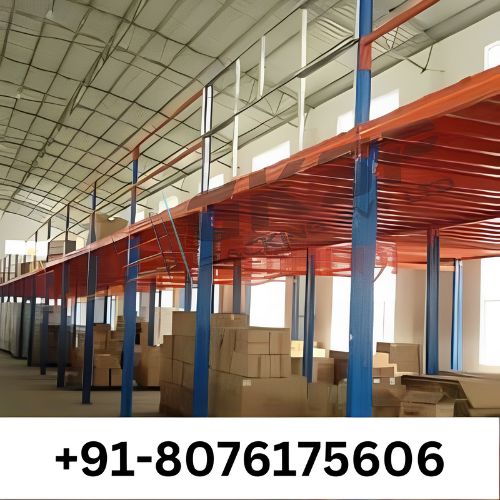In the ever-evolving world of spatial optimization, businesses and industries are continually seeking innovative solutions to make the most of their available space. Enter the mezzanine floor – a versatile and strategic addition that has become a game-changer in maximizing both floor space and operational efficiency. This blog delves into the advantages of mezzanine floors, shedding light on their diverse applications and how they empower businesses to elevate their spatial dynamics.
Unveiling the Concept of Mezzanine Floor:
Mezzanine floors, are elevated platforms that create an additional level within an existing space. Typically constructed between the ground floor and ceiling, mezzanines offer an ingenious way to capitalize on vertical space without the need for major structural alterations.
Key Advantages of Mezzanine Floor:
- Optimized Space Utilization: One of the primary advantages of mezzanine floors is their ability to optimize available space vertically. Businesses can effectively double their usable area without the expense and disruption of building expansions.
- Cost-Effective Expansion: Mezzanine floors provide a cost-effective alternative to traditional expansion methods. The construction of a mezzanine is generally less expensive than extending the building horizontally, and it often avoids the need for additional permits.
- Versatility in Applications: Mezzanine floors find applications across various industries, from warehouses and manufacturing plants to retail spaces and offices. Their adaptability makes them suitable for diverse operational needs, including storage, offices, or additional workspace.
- Quick Installation and Minimal Disruption: Compared to major construction projects, the installation of mezzanines is relatively quick and causes minimal disruption to ongoing operations. This allows businesses to enhance their space without significant downtime.
- Customization Options: Mezzanines offer customization options to suit specific requirements. Businesses can choose from various flooring materials, railing designs, and configurations to align with their aesthetic preferences and functional needs.
Applications of Mezzanine Floor:
- Warehousing and Storage: Mezzanines are widely used in warehouses to create additional storage space. This particularly beneficial for storing inventory, archived documents, or goods with varying sizes and weights.
- Office Spaces: In office environments, mezzanines utilized to expand workspace, accommodating additional offices, meeting rooms, or collaborative areas. This flexibility is valuable for growing businesses.
- Retail Environments: Retailers often leverage mezzanines to enhance their store layout. This can include creating additional retail space, storage for inventory, or even providing an elevated platform for special displays.
- Manufacturing Facilities: Mezzanines offer manufacturers the opportunity to expand production areas without disrupting existing workflows. They used for additional assembly lines, quality control, or storage of raw materials.

Safety Considerations and Compliance of Mezzanine floors:
Important to note that while mezzanines provide excellent space solutions, safety is paramount. Proper design, engineering, and compliance with building codes and safety regulations. These are essential to ensure the structural integrity and safety of the mezzanine.
Conclusion:
Mezzanine floors represent a smart and versatile solution for businesses looking to optimize their space without the complexities of traditional expansion. Whether utilized in warehousing, offices, retail spaces, or manufacturing facilities, mezzanine floors empower businesses to elevate their spatial dynamics, fostering growth and efficiency. Explore the possibilities of mezzanine floors and discover how they can revolutionize your space utilization strategy.
Connect us through instagram & facebook. Click at the link to enquire about your requirement.
